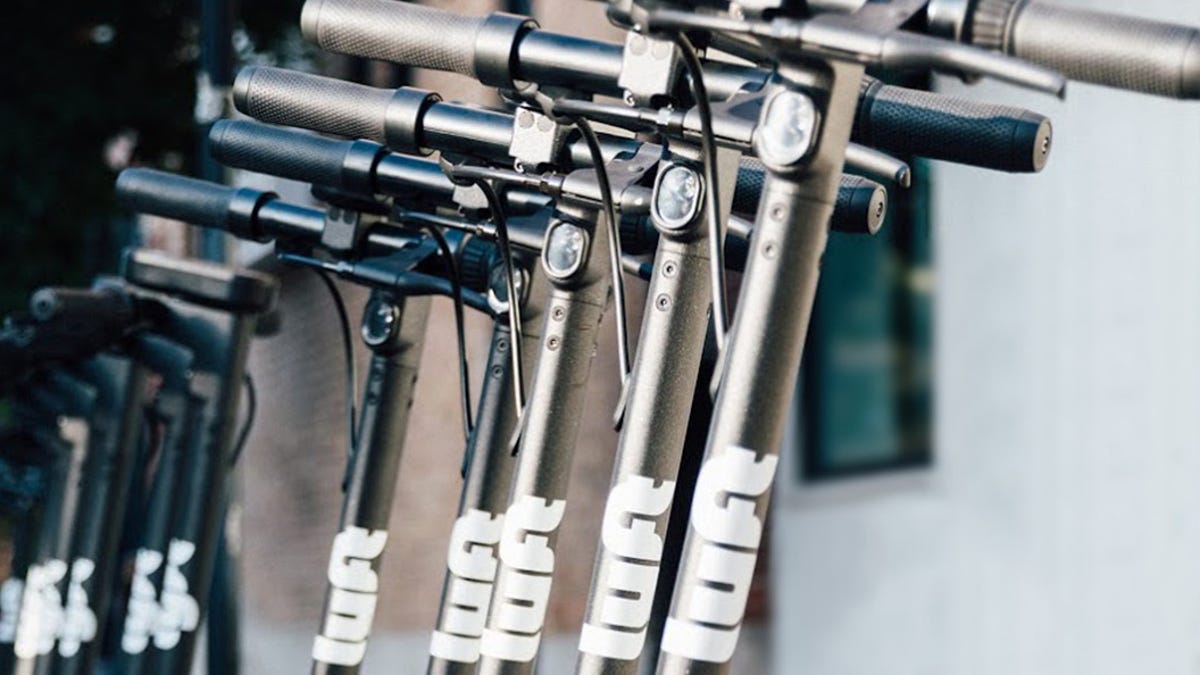Lyft extends free scooter rides for critical workers amid coronavirus pandemic
Free scooter rides for health and transit workers are now available through May.

Lyft is giving health care professionals, first responders and transportation workers free rides on its scooters.
At the start of April, Lyft began offering free scooter rides to assist first responders, health care professionals and transit workers through the coronavirus pandemic as they do their jobs. On Friday, Lyft said it is extending the assistance another month. Lyft made available unlimited 30-minutes rides to critical workers in Austin, Texas; Denver; the DC metro area; Los Angeles; San Diego; and Santa Monica, California.
To qualify, employers need to enroll their workers in the program. Lyft said the free service will run through May. As part of the service, Lyft said it's deploying additional scooters around hospitals.
Lyft said it's offering similar free services for those doing critical jobs in Boston with Bluebikes, in Chicago with Divvy, in New York with Citi Bike and in the San Francisco Bay Area with Bay Wheels. The free rides for critical workers are part of an expanded effort by Lyft to assist during the crisis and keep its drivers working, including offering assistance for low-income seniors, young families and people with disabilities and delivering medical supplies.
Lyft and Uber drivers have expressed concerns about driving during the crisis, and those in California asked both companies to take steps to protect them.

